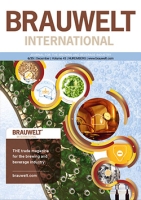Biotechnology for sustainable water supply in Africa
ttz Bremerhaven is a provider of research services and performs application-based research and development. Under the umbrella of ttz Bremerhaven, an international team of experts is working in the areas of food, environment and health.
The fundamental principle of the Waterbiotech project is to treat wastewater by means of biotechnology for reuse. The approach aims at compensating water scarcity and reducing the overexploitation of freshwater resources and will thus ensure a sustainable water supply for developing countries in Africa.
Although climate change is observable across the globe, its negative impacts are most obvious in Africa. Indeed, the continent is facing a variety of problems, whereby the most important and urgent ones to tackle are water scarcity, famine and disease. In addition, limited natural and financial resources as well as economic difficulties complicate the process of improving wastewater treatment techniques. The treatment of polluted waste water and its reuse is more or less the only way for African countries to avoid the exhaustion of limited water resources and to deal with water scarcity. Most developing countries cannot afford the majority of advanced and specialized systems used for the treatment and purification of wastewater. As a consequence, wastewater is inefficiently treated and therefore still contains pathogenic organisms, xenobiotics and heavy metals after treatment. Inefficiently treated wastewater is not only environmentally unfriendly and contaminates the groundwater, which is considered to be as precious as oil in this almost desertified continent, but additionally and more importantly endangers human health.
In the course of the Waterbiotech project, a consortium comprising 17 partners (8 European, 7 African, 1 from the Middle East and 1 international) is developing a practical approach using biotechnology as an affordable, cost-effective, efficient and environmentally friendly method for wastewater treatment in Africa. Waterbiotech combines traditional wastewater treatment techniques with more modern ones such as stabilization pond technology, maturation ponds, constructed wetlands, sequenching batch reactors, membrane technology, bio-desalination, or trickling filter. The advantage is that all these techniques are easily adaptable to local conditions and resources in developing African countries. The target countries of the project are Algeria, Burkina Faso, Egypt, Ethiopia, Morocco, Senegal, South Africa, Tunisia, Ghana and Saudi Arabia.
Source
BRAUWELT International 2012



